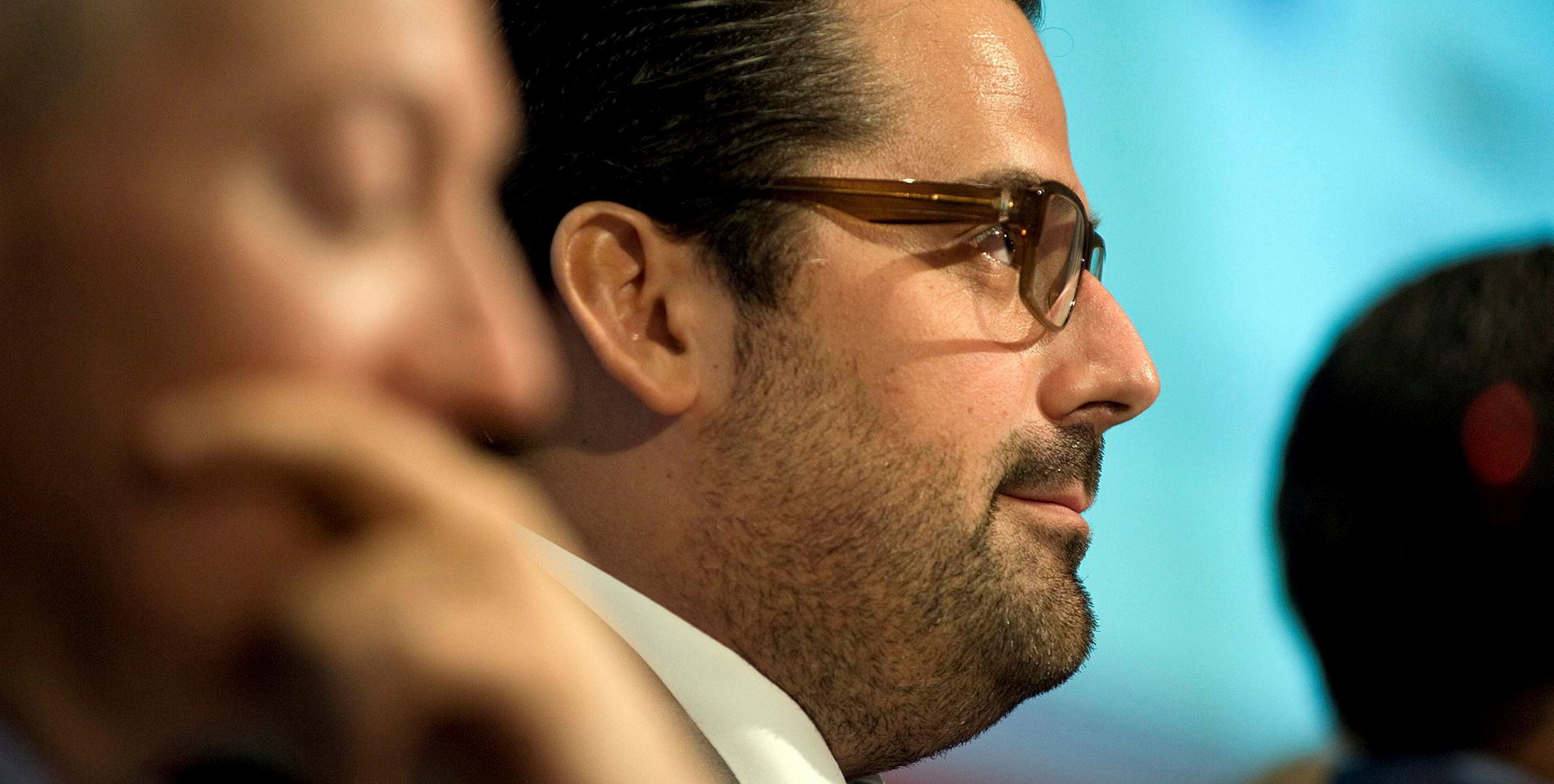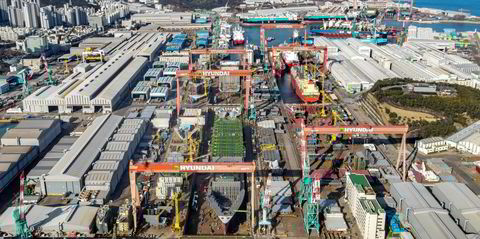Investors do not exactly seem to be jumping on the wind-energy bandwagon in their reaction to Scorpio Bulkers’ confirmation that it is speeding its selloff of dry cargo ships to embrace a new role in that sector.
Indeed, they’ve responded to Scorpio selling off ships by selling off shares.
Scorpio was the worst performer among the 30 US-listed shipping stocks under coverage of investment bank Jefferies last week with a 22.6% drop on the week as the owner affirmed a stepped-up timetable for its transition.
If uncertainty is a problem for investors, then it is not surprising they might have problems with Scorpio. For uncertainty abounds.
Never before has a public owner in a mainstream shipping sector like dry bulk tried to make this sort of jump in wind turbine installation vessels (WTIVs) – essentially a switch to the renewable energy sector.
And as TradeWinds has reported, it’s not at all clear what Scorpio Bulkers – soon to be renamed – will do for business once it sells off its final bulker, perhaps as soon as March.
Time horizon
It is staring down nearly two years before it is able to take delivery on the first WTIV, a vessel that is used to install the giant wind turbines that generate power from locations offshore.
But on the plus side, Scorpio is trading a place in a long-suffering shipping sector where it trades at some 50% of its net asset value (NAV) – many peers face similar discounts – for an emerging market where there could be large premiums.
So uncertainty, and investors thus far not convinced.
Scorpio shares dropped 15% from $14.20 to $12.11 when it announced earnings and the quicker timetable 27 October and kept sliding through the week, landing at $10.98 at close of business Friday.
This is against a 2020 high of $63.40 on 1 January, adjusted for a reverse stock split.
But one investor that took advantage of the stumble was Scorpio itself.
Insiders entity Scorpio Services Holding made two separate buys of the stock, first taking 130,000 shares in the open market at an average price of $11.22, then pouncing on 40,000 shares at $10.84.
Together, the buys cost nearly $1.9m and took the stake of SSH, Scorpio’s largest shareholder, to 25.09%.

SSH is majority owned by the family of chief executive Emanuele Lauro, with stakes also held by president Robert Bugbee and chief operating officer Cameron Mackey.
It is not new to supporting Scorpio’s two public companies, having bought millions of dollars worth of shares in both the bulker entity and sister Scorpio Tankers in recent months.
Yet the recent moves demonstrate a clear belief in Scorpio Bulkers’ strategy shift.
Backing
B Riley Securities analyst Liam Burke on Monday became the latest analyst to back the pivot as he maintained a buy rating on the share with a $30 price target.
“By closing the gap between the company's fleet NAV and SALT share price through the sale of its bulk fleet assets and reinvesting the vessel sale proceeds into higher return assets, the company should create significant shareholder value,” Burke reasoned.
“During the transition period, between the sale of the dry bulk fleet assets and the deployment of its first WTIV, the company will build a strong cash balance to provide confidence to lenders, shipyards, and customers.”
While continuing the current pace of bulker sales could put Scorpio out of ships by March, the company’s willingness to entertain en bloc sales – as it expressed on the earnings call – could bring an end even faster.
While it has generally been assumed that Scorpio would accept cash only buyers, other sources suggest that shares-based buyers – read: other public companies – could be in the hunt.
While Scorpio needs cash liquidity for its wind investment, near-term payments are no more than $14m and major ones no sooner than 2023, meaning that it could sit with shares of another public owner if it still believes in the dry-market story.
Should it believe?
Stifel analyst Ben Nolan said in a general market commentary Monday that dry bulk faces fleet growth of around 4% next year absent enough scrapping to offset deliveries.
The balance, “beyond 2021, starts to look much more promising, but such is the nature of shipping, always next year.”







